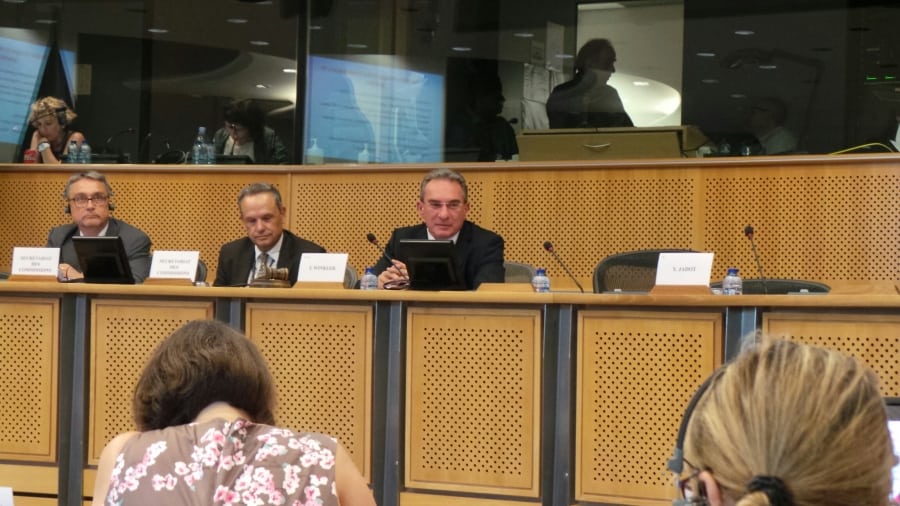An efficient European response to the migrant crisis requires a substantial increase of the corresponding funds in the EU budget for 2016, claims MEP Iuliu Winkler (UDMR, EPP), in the opening of the European Parliament´s (EP) International Trade Committee (INTA) first autumn session meeting, which took place Monday, 31st August.
The meeting, presided over by Iuliu Winkler, the Vice-Chair of INTA, included on its agenda a vote on the Opinion related to the 2016 budget, which will be passed on to the EP´s Budget Committee (BUDG).
“The events of the last weeks clearly point to the fact that we have a crisis, unprecedented in the last decades, to which we, MEPs, have to give a concrete response to. One of the instruments we have at our disposal is the EU´s 2016 budget. (…) we have the duty to ask ourselves: are those appropriations foreseen in the 2016 budget sufficient for giving an efficient European answer to the migrant problem, or should maybe these funds be increased?”, argued the MEP.
Winkler underlined the fact that the budget proposal submitted to INTA for revision was drafted 4 months ago, moment in which the exact dimensions this crisis would reach could not be properly anticipated.
“The 2016 budget finances the European agenda for migration, provides for the financing of emergency assistance given to the most exposed Member States (MS) and assures for increased funds for European Agencies such as FRONTEX or EASO – the European Asylum Support Office. This budget proposal that we are debating here today was drafted 4 months ago, and the last weeks have brought developments that, according my views, justify a substantial increase of European funds designated to an efficient response to the migrant crisis”, affirmed the INTA Vice-Chair in his dialogue with MEP Reimer Böge (EPP, Germany), rapporteur in the BUDG Committee.
According to Winkler, the EU budget proposal for 2016 was conceived with a sufficient degree of flexibility, benefiting from reserves of more than 2 billion euros which could be redirected towards the most imperative priorities. In his opinion, besides the investments necessary for Europe and provided for in the Juncker Plan, a significant increase of all those funds which could aid MS in tackling the wave of refugees is crucial. “The response to this crisis has to be a European one, given that MS cannot singularly deal with this crisis”, further added Iuliu Winkler.
In May, the European Commission proposed for the year 2016, an EU budget of around 143,5 billion euros. According to the legislative calendar, the 2016 EU budget would be first voted upon in the EP´s 28 October plenary.
According to the European Commission, the EU budget also responds to new developments in Europe’s neighbourhood and beyond. There is €9.5 billion (+28.5%) to support the EU’s capacity to respond to external crises, such as those in Ukraine and Syria, and to provide humanitarian help to those in need. The European Neighbourhood Instrument (ENI) and the Development Cooperation Instrument (DCI) will be reinforced to €2.1 billion (+34%) and €2.7 billion (+27%), respectively.
Additionally, the draft EU budget includes two amounts for each programme to be financed – commitments and payments. “Commitments” refers to the funding that can be agreed in contracts in a given year; “payments” to the money actually paid out. In the draft 2016 budget, commitments represent €153.5 billion (down 5.3% from 2015) and payments €143.5 billion (up 1.6% from 2015). This means payments are roughly stable in real terms relative to 2015. The payments include the credits needed to phase out the backlog of outstanding claims from the past budgetary programming period, which reached €24.7 billion at the end of 2014. The EU budget amounts to roughly 1% of EU GDP, but thanks to its multiplication effect and its focus on results, it has a big impact.








